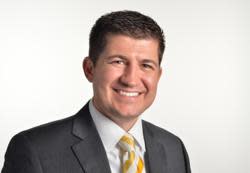Moving to Florida? Prepare your assets for optimum benefit | Retire on Track


Despite Hurricane Ian, Florida will continue to be a preferred destination for people moving from other states. Last year more than 330,000 people changed their legal residence to the state.
I love living here and it’s a great place to raise a family. Sure, the warm weather, beaches and golf courses are great, but there are also strong reasons related to taxes and estate planning for domiciling here. For example, there’s no state income tax or state inheritance/estate tax. Florida also provides several property tax exemptions on primary residences.
But if you’ve had enough of the snow and cold weather and want to make Florida your permanent residence, to realize all the benefits of domiciling here you’ll need to follow a number of steps and prepare your assets properly. Many of them are related to showing the government that you’re serious about your intentions. This includes notifying the IRS and your state’s tax authorities that you’re moving primary residences, providing the Social Security Administration with your new address, getting a Florida driver’s license or ID card, registering your vehicles located in Florida with the state, and changing credit cards to your Florida address.
This is just a start, however. The idea is to do as much as possible to prove that your primary residence is in Florida. In a checklist for New Yorkers who want to move to Florida published by a New York legal firm, for example, No. 24 says, “Do not spend more than 184 days in New York State after you have changed your domicile to Florida.”
Another critical step is to update your estate plan. States each have their laws and regulations regarding estates, and until you update your estate, it will likely be governed by the state where you previously domiciled.
Florida, for example, has certain requirements for who’s eligible to be an executor, called a personal representative here. You have to be a Florida resident or related to the person who named you their personal representative, and you can’t have a felony conviction, for starters. How your primary residence will be transferred to beneficiaries upon your death also has to meet various requirements.
Florida laws also may differ from those of other states regarding durable powers of attorney, living wills, and other documents related to estate planning.
Don’t try to make Florida your permanent home alone. There are a lot of ins and outs to the process and state laws are always changing.
And if you haven’t developed an estate plan yet, don’t delay. You should have one in place to make sure what happens to your assets reflects your goals for your family and other beneficiaries. Trusts can be effective financial planning tools for buying life insurance, charitable giving, and managing how and when beneficiaries receive funds.
The Sunshine State is a great place to have a permanent residence. Just make sure you’ve checked off everything you need to do before domiciling here.
Evan R. Guido is the founder of Aksala Wealth Advisors LLC, a 2018 Forbes Next-Gen Advisors List Member, and Financial Professional at Avantax Investment ServicesSM. Evan heads a team of retirement transition strategists for clients who consider themselves the “Millionaire Next Door.” He can be reached at 941-500-5122 or eguido@aksalawealth.com. Read more of his insights at heraldtribune.com/business. Securities offered through Avantax Investment ServicesSM, member FINRA, SIPC. Investment advisory services offered through Avantax Advisory ServicesSM, insurance services offered through an Avantax affiliated insurance agency. 6260 Lake Osprey Drive, Lakewood Ranch, FL 34240.
This article originally appeared on Sarasota Herald-Tribune: EVAN GUIDO: Moving? Follow these steps to prepare your assets
